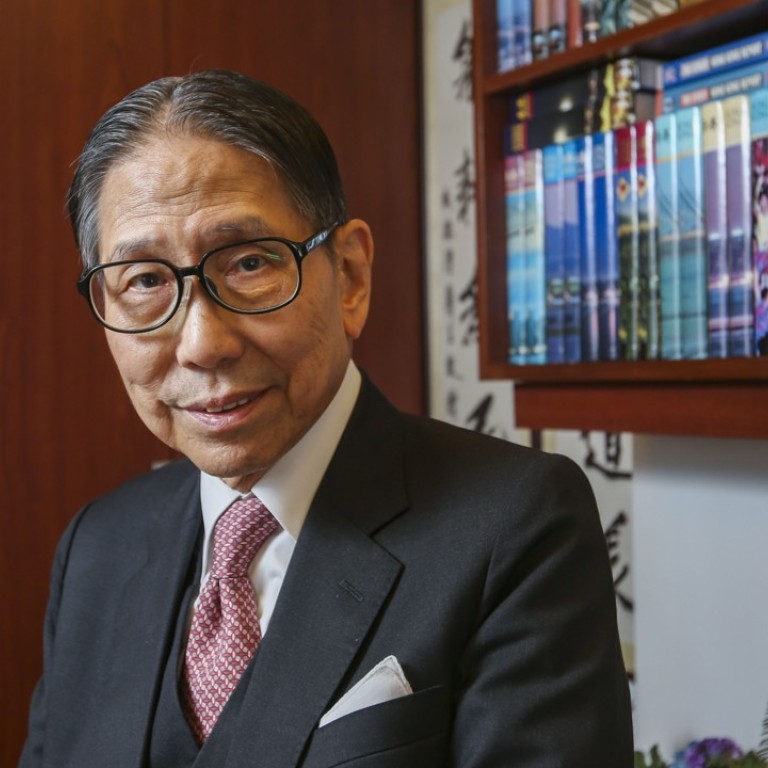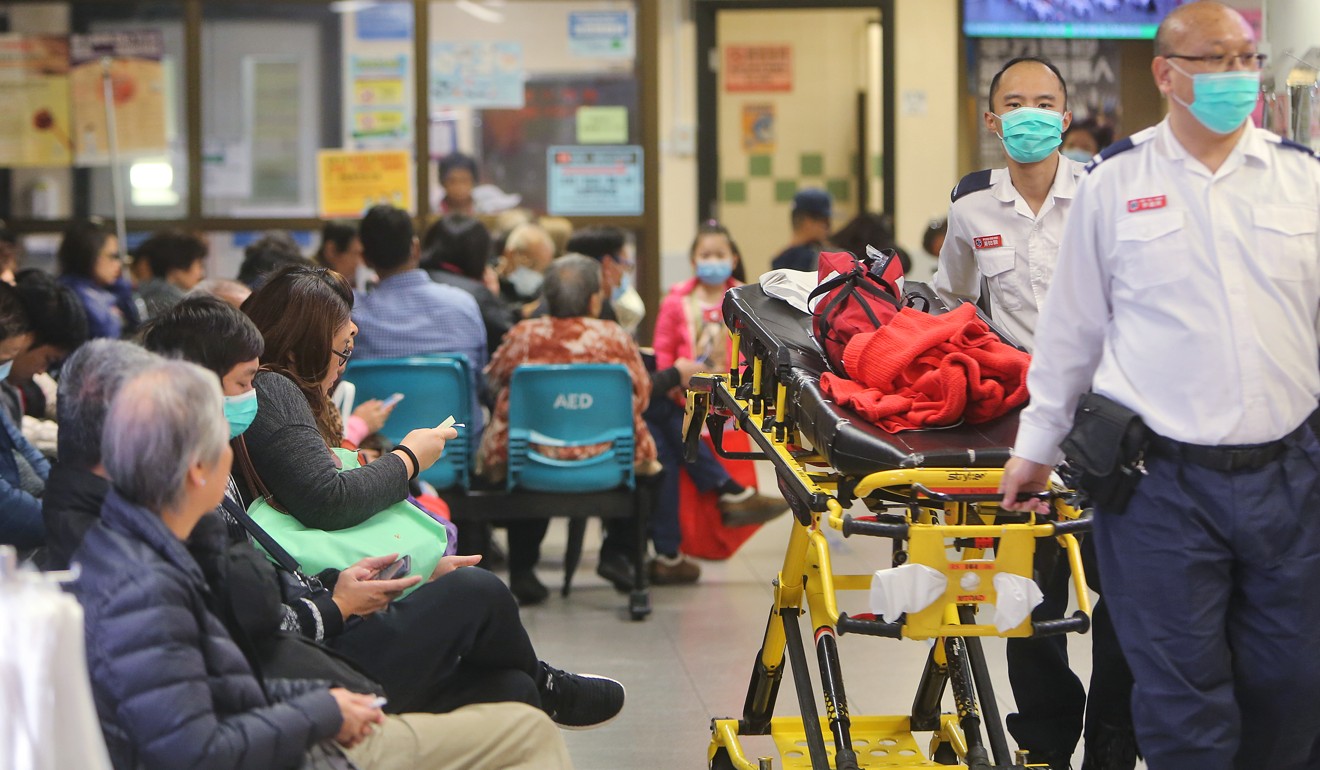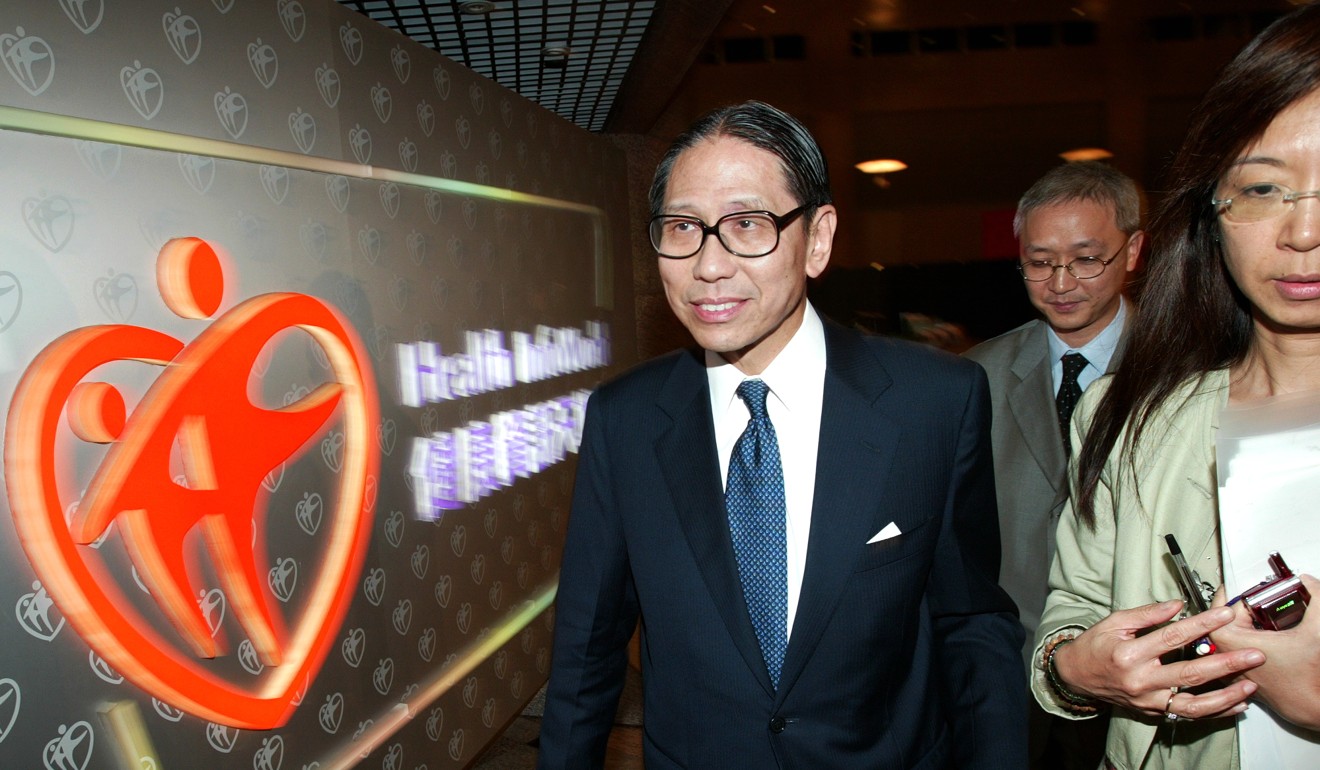
Subsidise poor and charge the rich more for medical services: former Hong Kong Hospital Authority chief Edward Leong
‘King of public service’ says he expects strong opposition to his idea, but insists it is a way to help city’s overburdened medical sector
Hongkongers should be prepared to pay more for medical care if they can afford it, the former chief of the city’s main provider of public health care has said, adding that this would solve the problem of overstretched government hospitals and long waiting times for consultations.
Dr Edward Leong Che-hung, who has headed multiple public sector agencies including the Hospital Authority from 2002 to 2004, reiterated his long-standing call for means testing and “targeted subsidies”.
“If you are poor, we subsidise you more; if you are rich, we subsidise you less,” Leong said, adding that Singapore had adopted a similar system.
The public hospital crisis: temporary beds, angry patients and stretched staff
His comments came in an interview on his new book, titled The Triumph of Rationality: From Surgical Practice to Public Service.
Leong said that while “nobody should be devoid of proper care because of lack of means”, it is a problem for the city’s public health care system that rich and poor pay the same. Care fees are waived for the city’s very poorest.
“No matter how rich you are, you can still use the heavily subsidised public service – that’s a problem,” said Leong, widely known as the “king of public service”.
His younger brother, Professor John Leong Chi-yan, now heads the Hospital Authority.
No matter how rich you are, you can still use the heavily subsidised public service – that’s a problem
Any holder of a Hong Kong identity card using services under the Hospital Authority can pay as little as HK$15 for medication available in specialist outpatient clinics, or at most HK$195 for each visit at an ambulatory facility for a day procedure or treatment. The charge for a general ward bed is HK$120 per day.
The Food and Health Bureau said public health care services in Hong Kong were heavily subsidised by the government, but the discounts for medical items or drugs only applied to those on a specific list. Public health care patients seeking items not on this list would have to pay the full price, it said.
Hong Kong’s public health care system is notoriously overburdened. Stories of patients lying for hours in emergency wards waiting for treatment, temporary beds filling up corridors during peak flu periods, and congested waiting rooms have been reported at the city’s 43 public hospitals and institutions that provide care for 90 per cent of inpatients.

Between April last year and this March, there were 1.82 million records of discharges, day patient cases and deaths.
Leong stressed that targeting medical care subsidies only at those in need would be a “workable solution” for the strained public health care sector.
In his book, the former lawmaker argued that the degree to which a patient receives help “should reflect the financial status and the financial burden of the illness that the patient has to face”.
But he said in the interview that he expected there would be opposing voices from the public should his plan proceed. “If people who used to pay almost nothing are now asked to pay, why won’t there be any opposition?” he said.
Public hospitals see repeat visits from elderly lacking welfare help
Leong, who made a bold decision in 2002 to introduce charges for public accident and emergency services – which used to be free – said he was not perturbed that his suggestions had not been taken on board.
Hongkongers would need a mindset shift to embrace any change, he pointed out.
Patients’ rights advocate Tim Pang Hung-cheong said Leong’s suggestion of charging patients differently based on financial status would violate the universal principle to treat everyone equally in public hospitals.

He said a great debate would ensue on the matter of who should be charged more.
On the government’s Voluntary Health Insurance Scheme – a plan set to be rolled out early next year for people to purchase officially certified plans from insurers and turn to private sector health care – Leong said there was a “question mark” as to whether it would succeed.
In public hospitals, distressed nurses left feeling like Allied troops at Dunkirk
He said most public health care users are the elderly, who are less likely to be covered by any health insurance scheme because of the cost.

